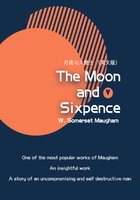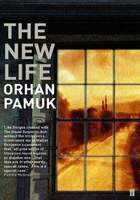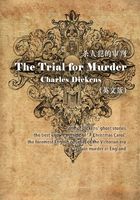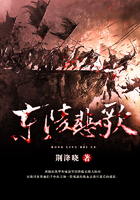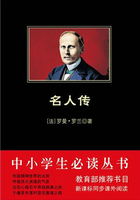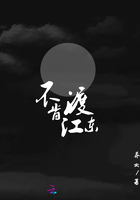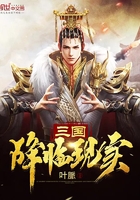THE SECOND WORLD WAR witnessed the deaths of more than sixty million people from over sixty different countries. Entire cities were laid waste, national borders were redrawn and many millions more people found themselves displaced. Over the past couple of decades, many of those living in the Middle East or parts of Africa, the Balkans, Afghanistan and even the United States may feel, justifiably, that these troubled times have already proved the most traumatic in their recent past. Yet, globally, the Second World War was, and remains, the single biggest catastrophe of modern history. In terms of human drama, it is unrivalled; no other war has affected so many lives in such a large number of countries.
Yet much of what we think we know about the Second World War is steeped in perceptions and myth rather than fact. For the past sixty-odd years, we have looked at this cataclysmic conflict in much the same way, particularly when it comes to examining the War in the West – that is, the conflict between the Axis, led by Nazi Germany, and the Western Allies.
Seventy years on, the generation that fought through the war is -slipping away fast. At the time of writing, the vast majority still living are into their nineties; there has been an urgency about the way in which veterans have been interviewed before it is too late, and there is no doubt that it is the human experience of war that has been the focus of much of the recent mainstream books on the subject.
The human drama of the war is what first drew me to the subject. It still seems incredible that just a short time ago we in Europe were embroiled in such a bitter and destructive conflict. I have often wondered what I would have done had I been a young man back then; would I have joined the Air Force, the Navy or the Army? How would I have coped with the loss of friends and family? How would I have dealt with the fear, or with the often brutal conditions? Or with being away from home for up to years on end?
The questions are still fascinating, and the immensity of the drama is still compelling, but as my knowledge and understanding have grown, so have I realized how many questions still remain and how vast a subject the war really is.
It is, however, easier to unearth new material and learn fresh per-spectives than it once was. The comparative cheapness of travel, the opening up of many archives, and, especially, the advent of digital -photography have all played important parts; I should know, for in the past decade I have -travelled to Germany, Austria, Norway, France, Italy, America, Canada, New Zealand, India, Egypt, Tunisia, Libya, South Africa and Australia, visiting archives, interviewing veterans, and walking the ground. When I began, a visit to the archives meant taking hugely time-consuming notes in pencil; now, what once took a week can be achieved in a fraction of that time. When I was at the Citadel, the Military College of the South in Charleston, South Carolina, I photographed most of General Mark Clark's entire papers in a day. Back home, these papers can then be examined more thoroughly, and at leisure; it means greater detail can be absorbed and analysed.
Despite the continued appetite for the subject, and despite a steady stream of books, documentaries, magazines and even movies about the war, it is amazing how often they still conform to the traditional, and in many regards mythical, view of the conflict. That general perception goes something like this: that at the start of the war Nazi Germany had the best-trained army in the world with the best equipment and weapons. In 1940, Britain, now stranded and alone, managed to hold out and keep going until the United States entered the war. Thereafter, American -economic might overwhelmed German military prowess, which in any case was fatally weakened by the much more significant, and large-scale, war on the Eastern Front. These basic presumptions have dominated thinking for the best part of sixty years.
There has, however, been something of a quiet revolution going on in academic circles, and, just occasionally, this work has managed to burst out into the mainstream, which is all to the good. My own views began to change dramatically when I started writing a series of wartime novels. Although fiction, they needed to be rooted in detailed research, but while -writing them I suddenly realized I needed to know a great deal more about the minutiae of war – that is, the uniforms and weapons that were used, and, more importantly, how they were used, and why particular tactics were developed.
This level of study was revelatory, because suddenly a very different -picture was emerging. The narrative focus has been very land-centric – as it was, incidentally, in Hitler's own mind – and we have often been rather too seduced by the action at the front. Yes, tactical flair is important, but it's not going to win a war unless other facets are carried out with equal ability.
In the early narrative, the focus was on the high level of war – the -decisions by generals, for example. Personal memoirs followed: first the generals and decorated war heroes, then the 'ordinary' men – and women. Over the past thirty years, much work has also been done on the human experience of the war, but what has been conspicuously lacking is the -context to go with these personal accounts. After all, it is all very well having the testimony of an American soldier, cowering in his fox-hole as he came under mortar fire, but why was he there and why were the mortars being fired? Just how did armies, air forces and navies operate? And what were the differences in their approaches? All too often, accounts of men in the war revert to old myths and stereotypes: British troops were slow and spent too much time 'brewing up' tea; Americans were scruffy and lacked discipline; German machine guns were manifestly the best on either side; the Tiger tank was similarly the best tank of the war, and so on.
But on what basis have those judgements been made? And are they fair? Very often not. Talk to a GI or Tommy who had to confront a German Tiger tank, to pick one example, and he'll most likely tell you it was a -terrifying beast and vastly superior to anything in the Allied arsenal. It was huge. It had a big gun. It had lots of armour. The Allied soldier's view is entirely valid. But the Tiger was also incredibly complicated, mechan-ically un-reliable, very difficult to sustain in combat, unusable for anything other than short distances, and could only be moved any distance by rail, for which it needed a change of tracks because otherwise it would not fit on the continental railway loading gauge; it was ludicrously thirsty in terms of fuel – of which the Germans had precious little by 1942 when the Tiger first appeared – and was too heavy to use most of the bridging facilities available at that time of the war, so would have been useless for any force operating on the offensive. The GI confronting such a terrifying weapon is not concerned about any of these issues – it's big and scary and he's literally staring down the barrel of death. But the historian does need to consider such things. Believing a particular weapon was more deadly than others just on the word of someone who confronted it in battle isn't good enough. There's a more nuanced picture to consider, and in analysing these things and questioning some of these long-held views, quite different pictures emerge.
In warfare, there are understood to be three important levels: the -strategic, the operational and the tactical. Strategy refers to the big -picture – the overall aims; the tactical level is the fighting on the front line and how that is conducted; and the operational refers to the means of making both the strategic and the tactical happen – in other words, the nuts and bolts: the kit, the ammunition, logistics, resources – the economics of war – getting men and machines from A to B. Sustaining the battle.
Talk to a British veteran of the Battle of Britain, for example, and he might describe how he could be shot down one day but be flying again the following morning. So where did he get his new plane and in such quick order? I once put this to Tom Neil, who flew Hurricanes with 249 Squadron in the summer of 1940. 'Where they came from and how they got there, I have no idea,' he said. 'But every morning, as if by a miracle, we had a full complement of aircraft again.'
And talk to an Allied tank man who fought in Normandy in 1944 and he will almost certainly say much the same thing: his Sherman was knocked out one afternoon, but the following morning he was in a new one and back in action. Where did it come from? 'We just went back to Echelon and picked up another,' one British squadron commander in the Sherwood Rangers told me. When I pushed him, he confessed that he lost three tanks between landing in Normandy and the end of the war the following May, but he never went a single day without a tank.
It is this operational level that has been most neglected in the histori-ography of the Second World War. But don't be put off – it's also one of the most interesting, because when one starts to understand this more complex level, all kinds of new perspectives appear, which cast our understanding of the war in a different light. And that is very exciting.
I have been researching these three volumes for years, but as I began writing, it occurred to me that I should, from the outset, set down my aim and the parameters I have given myself. Above all, this is meant to be a compelling narrative history – one that can be easily read and digested, and hopefully enjoyed, yet which brings together not only my own research but also much of the recent academic thinking on the -subject. The aim is not to write only a military history, but a social, -political and economic history too. One of the things I have come to learn is that when studying the Second World War, none of these themes should be sep-arated. Or, rather, a much clearer picture of what was going on emerges when these different facets are interwoven.
This is not intended to be a detailed account of the fates and fortunes of every single country that took part in the War in the West. Rather, I am focusing on the principal participants: Germany and Italy on the Axis side, Britain and the United States on the Allied (although in fact they were in a coalition, not a formal alliance). In between them is France – one of the Allies to begin with, then on the Axis side (albeit with elements fighting for the Allies), and then back with the Allies towards the end. Other countries – such as Norway, Holland, Greece and Belgium – will also be examined, but not in as much detail. Nor will the wider war be ignored. What was happening in the Soviet Union and the Far East had an enormous impact on events in the West; it is impossible to entirely separate east from west.
The spine that I hope will hold the narrative together will be provided by a cast of individuals – from politicians, generals and industrialists to -captains, privates and civilians. Their stories will be illustrative of the -experience of war and the conduits to explaining the bigger picture. The narrative of the Second World War in the West is a wide and sweeping one: in the air, on the land and out at sea; from the mountains and fjords of Norway to the heat of the African desert, and from the sparkling Mediterranean to the briny grey of the Atlantic. It's an epic story and still, after all this time, one about which there is much to learn.



